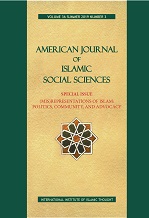The American Journal of Islamic Social Sciences has published a review by Philipp Bruckmayr of the edited volume From Anatolia to Aceh. Ottomans, Turks and Southeast Asia, edited by A.C.S. Peacock and Annabel Teh Gallop, in which I have a chapter.
Bruckmayr’s comments on my chapter are:
Amrita Malhi, in contrast, discusses how British colonial authorities as well as later western and nationalist Malaysian historiography failed to grasp, and have therefore misconstrued, the implications of the deployment of Ottoman caliphal symbology in anti-colonial uprisings on the Malay Peninsula. For the author, the Ottoman Empire’s symbolic relevance in the struggle against the British in Malaya represented neither religious fanaticism nor pious proto-nationalism, but rather resulted from the fact that during the first decades of the twentieth century, “nationalism had not yet established itself as the primary mode in which Malay Muslims expressed their counter-colonial desires” (p. 224).
